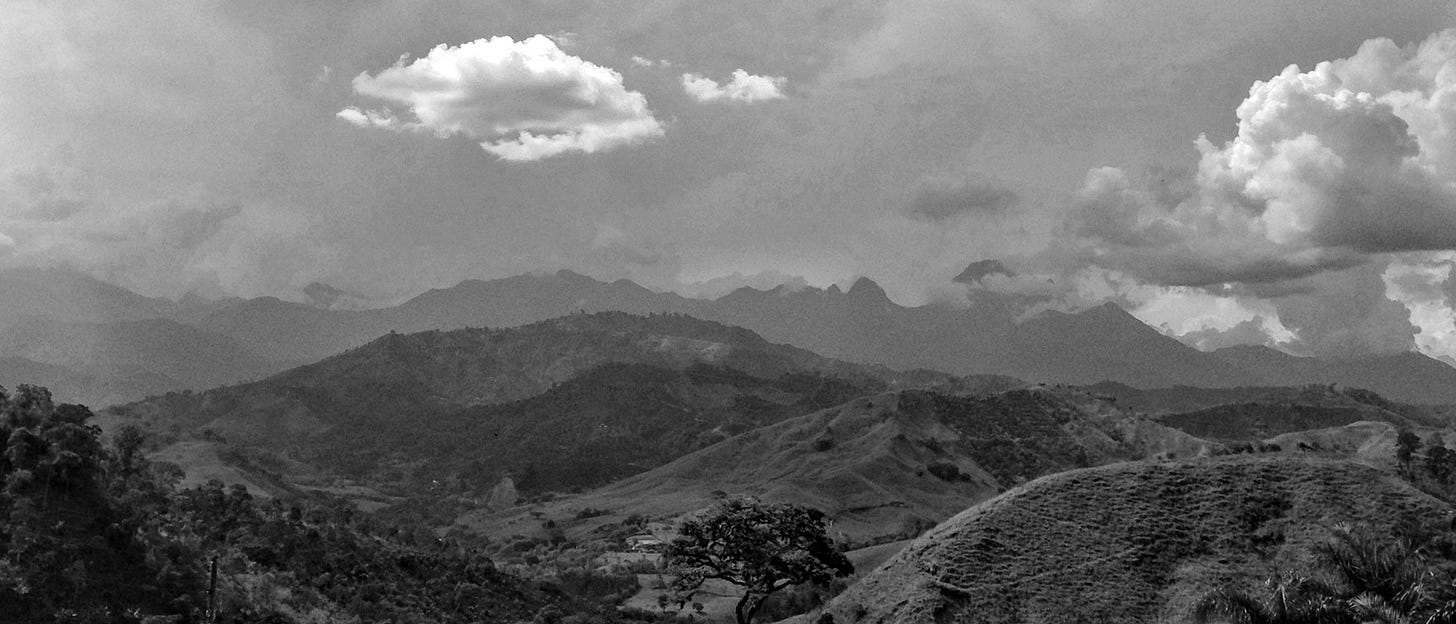Coffee News Roundup: Week Ending June 25th
This week, a study finds that people will spend more if coffee is "ecolabelled"; the military is trying to replace coffee with "a jolt to the brain"; and there's good news on the coffee health front.
Hello and welcome to another Coffee News Roundup.
Most weeks, I start off assembling these roundups and assume that it’s just going to be a quick article with a few news stories that aren’t particularly important or worth bothering with. “Another short one,” I imagine myself writing in the intro.
And then I start actually reading, and writing, and doing more research, and reading more, and writing more, and before I know it I’m staring at 1,200 words.
So, today’s Roundup could have been, but once again is not, another quick one. Maybe I need an editor.
People Willing To Pay More For Coffee That's Ethical And Eco-Friendly, Meta-Analysis Finds - Via Eureka Alert
That terms like “Organic”, “Rainforest Alliance”, and “Fairtrade” can influence the purchasing decisions of the average coffee drinker is probably not up for debate at this point. If they didn’t translate into added value, would those involved pay for the certifications?
The actual value of these terms has been less well known. How do you quantify such marketing? Well, a new meta-analysis from the University of Tasmania in Australia has shown that consumers are willing to pay a significant premium for coffee that is, as the report calls it, “ecolabelled”.
Analyzing 22 different studies, the researchers concluded that, in general, consumers are willing to spend $1.36 more if the coffee is labeled as eco-friendly in some way. Unsurprisingly, the term “Organic” came with the highest premium, but terms such as “Country of Origin Labelling” and “Fairtrade” also gave coffees a significant boost.
This probably isn’t surprising, given how ubiquitous terms like Organic and Fairtrade are. I’ve definitely chosen to buy a coffee because it was labeled Organic over one that wasn’t, everything else being equal. The consensus is that organic = better (whether that’s actually true or not).
The real question is, do the producers who, by and large, must foot the bill for the certification, see a $1.36 per pound increase in their profits? This comparison of the various certifications by the coffee importer N. J. Doucek shows that most certifications offer between 5 and 25 cents per pound in premiums to the producer (the data is from 2009, but still).
Funnily enough, the researchers for this new study found that preference for these labels was not consistent around the world: “compared to other regions, people were less willing to pay more for ecolabelled coffee in North America.”
Goodbye, Coffee? Service Members Might Soon Be Fueled By A Jolt To The Brain - Via Air Force Times
You wake up in the morning, groggy and sleep-deprived from a fitful night’s rest. Yawning and rubbing your tired eyes, you stumble downstairs to the kitchen and reach for your handheld neurostimulation device, grimly partaking in some Transcutaneous Cervical Vagus Nerve Stimulation by delivering 25 Hz of non-invasive electrical currents through the skin and into the nerve.
Six minutes later, now wide awake (?), you’re ready to start your day.
Sounds much better than pouring hot water over some crushed beans, doesn’t it?
The Air Force Research Lab seems to think so, having conducted this study on forty active-duty military personnel “in an attempt to analyze the efficacy of Transcutaneous Cervical Vagus Nerve Stimulation in treating migraines and the impacts of sleeplessness.”
“Fatigue is a serious and unavoidable problem for many professions such as medicine, transportation, and the military,” the study says. Apparently the military, with their billions of dollars of shiny murder machines, has a problem with the “exhaustion-fueled abuse of energy drinks and coffee.”
So the military is investigating a procedure that has been used to treat depression and drug-resistant epilepsy, in order to “increase wakefulness, attention, and arousal and improve mood during periods of sleep-deprivation-induced stress.”
The article also notes that the six minute “stimulation dose” somehow sounds “much more simple than all the rigmarole associated with making a cup of coffee.”
Does it now.
More Headlines
28 Farms Win 2021 Guatemala Cup Of Excellence Awards, Four Reach 90+
All Rise: One Coffee Company Is Suing Pepsi For Alleged Trademark Infringement
The Week In Corporate Coffeewashing
Allegro Coffee Company is giving $100,000 to the Whole Planet Foundation to provide “microloans” to “alleviate poverty in countries that supply the company’s stores with products.”
Allegro Coffee Company is owned by Whole Foods, which is of course owned by Amazon. The Amazon that crushed the recent unionization drive at one of its warehouses in Alabama, whose employees have to pee in bottles due to the time constraints placed upon them and who have a higher rate of injury than other non-Amazon warehouses. You know, worker-friendly Amazon.
“Each year, the generosity and support of Team Members, shoppers, suppliers and corporate partners provides life-changing opportunities for microentrepreneurs to generate income and lift themselves and their families out of poverty,” said Joy Stoddard, Whole Planet Foundation development and outreach director. Apparently, “as a repeat annual donor, Allegro has donated $628,940 to fund 23,805 microloans and create 131,150 opportunities for a better life.”
Do microloans actually create opportunities for a better life? Do they enable “microentrepreneurs” to generate income and lift themselves out of poverty? The jury is well and truly out on that one.
But hey, at least Allegro got some PR out of it.
Is Coffee Good For You?
This week it is! Drinking coffee is associated with a significantly reduced risk of developing chronic liver disease, according to new research published in BMC Public Health. It also reduces the risk of dying from liver disease by almost half. This included caffeinated and decaf coffee, as well as espresso, although the results were less pronounced in instant coffee-drinkers.
As seems to be the case a lot of late, the researchers used data from the UK Biobank to track nearly half a million people over more than ten years. During that time, all coffee drinkers saw a 21% reduced risk of chronic liver disease and a 49% reduced risk of dying from the disease.
Those who drank 3-4 cups per day saw the biggest risk decrease (although as usual nobody says how much that is). “Coffee is widely accessible and the benefits we see from our study may mean it could offer a potential preventative treatment for chronic liver disease,” said lead author Dr. Oliver Kennedy from the University of Southampton.
One note of caution: the authors do say that coffee intake was only recorded when participants first enrolled in the study and not throughout the ten year period, and the participants were mostly white and from higher socio-economic backgrounds.
What To Read
The Rising C: Some Potential Hidden Consequences Of Higher Prices by Jon Ferguson
The Lonely Cupper: Reflections On 15 Months Of Tasting In Solitude by Matt Damron
Until next week, drink good coffee.






